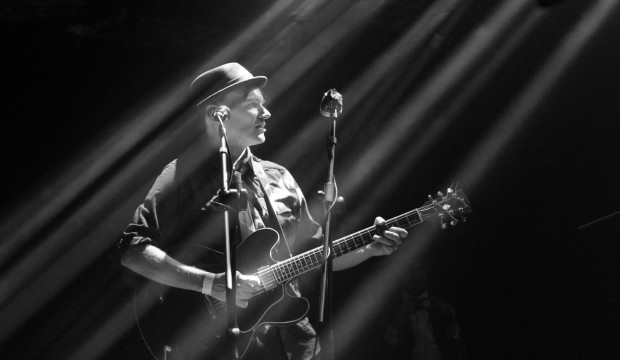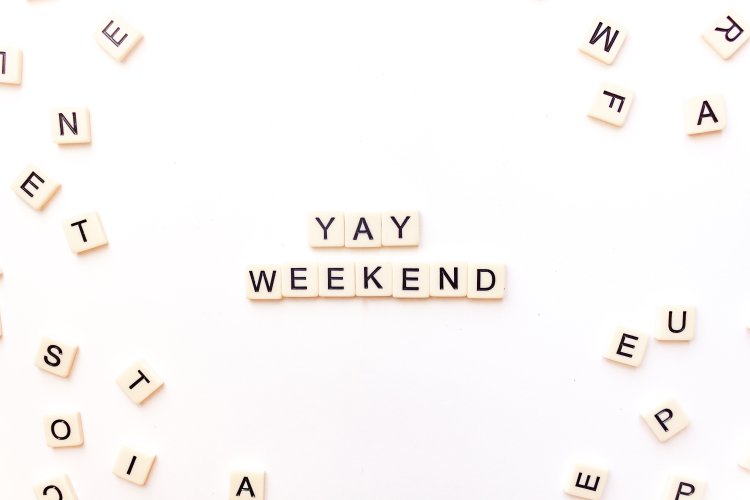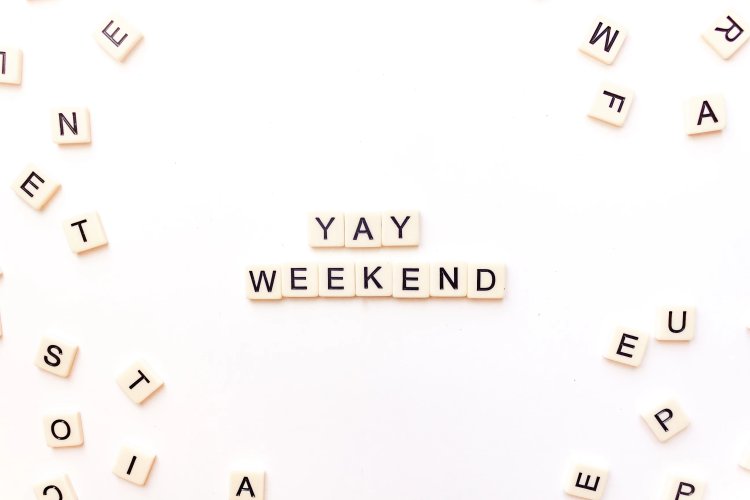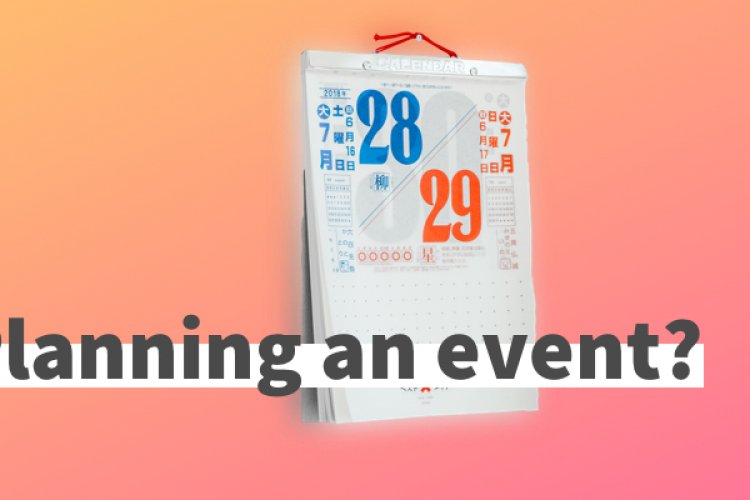Troubadour Todd Clouser Talks Breaking Down Walls With Music Ahead of Dec 27-28 Beijing Gigs
A border under threat of becoming a wall, inciting bitter division and fear of the other.
Though these current US domestic affairs loom large, Todd Clouser is having none of it. Yes, the Kansas-born, Minneapolis-raised singer-songwriter spent much of his youth in what would now be called the Trump heartland, but instead of adopting the xenophobia that now runs rampant in that region, he instead uses music to rebuke it.
Specifically, he moved to Mexico City, forming his band A Love Electric, and working on other projects like a half-English, half-Spanish duets album with burgeoning Mexican troubadour Lazaro Cristobal Comal. All this and more have lead NPR to call him "fascinating" and "ultimately illuminating" while the Philadelphia Inquirer praises him for "spicing up the All American vibe of Bill Frisell with some Jimi Hendrix fire." Below we speak to Clouser about inspiration, his music, and what it's like to collaborate with likeminded musicians.

How did you get started as a musician?
Dancing on the bookshelf at my parents’ home as a seven-year-old, singing “Love in an Elevator” by Aerosmith. My brother and I had bands, fake bands with air guitars and chopstick drums, when were eight and five. Then eventually when I was 11, my Dad got me a guitar. That was it. I haven’t stopped playing or wanting – needing – to make music since I was a little kid. I have tried to do other things, but they are unfulfilling and after a certain point I realized music is what I have to be doing, for myself and for what I might be able to offer to anyone else. Whether it's offering a sense of community to an audience, or entertaining listeners, or offering someone hope – it always comes best when it comes via music.
What songs are you working on these days, and what have been the biggest muses or inspirations?
I am working on writing the next album for my band A Love Electric, while I am out on tour. It's getting close [to completion]. That band has been the manifestation of many of my dreams as a kid, mainly: surviving by playing music. We have played something like 800 shows in six years, from jazz clubs to big festivals cafés and street corners, we do it all because we love it, and the music keeps growing. We started as an instrumental group and now it is all about songs. I'm telling stories, and trying to be as sincere as I can. I have learned a lot and I feel like our best music is yet to come.
I'm also writing a suite of songs for a photographer from Mexico City, Jesus Cornejo, dance music for a group called Gigante with members from Colombia and Norway, and some songs I hope to record with the New York singer-songwriter Jesse Harris. I write every day even if I try not to.
Inspiration is everywhere – travel, the other musicians I get to know and perform with, the lady sitting next to me on the subway in Tokyo. And listening. I listened today to PJ Harvey, Chicha music from Peru, folk singers from Durango, Mexico, and Leonard Cohen, so I tend to be as seemingly random in what I consume as what I put out. But it is all about a proper voice, and sincerity to me.

In 2016 you released America Grande, an album with Mexican songwriter Lazaro Cristobal Comala. How did that collaboration come about, and what did you enjoy most about it?
A friend of mine, the Mexico City filmmaker Saulo Corona, gave me Lazaro's first record and asked me to listen to it. He said it was American folk music, but in Spanish, made in Durango. I listened and really fell in love with the songs. Lazaro is a true storyteller songwriter. He is smart and clever and has the necessity in his blood to tell stories that every great songwriter needs.
We recorded that record quickly and from distance, he in Durango and me in Mexico City, at a time when it seemed necessary to make a record in Spanish and English with songwriters from both sides of the border. I hope we get to do another one.
Before that, in 2014, you released My Paper Bones with singer Renee Mooi. What did you enjoy most about working with her?
She is a great singer, full of color. I'm not a great singer, though I have found a voice that helps me express what I need to. But working with Renee I am able to write songs and melodies that I could never sing. She is an artist with her voice and very ambitious in how she sings.
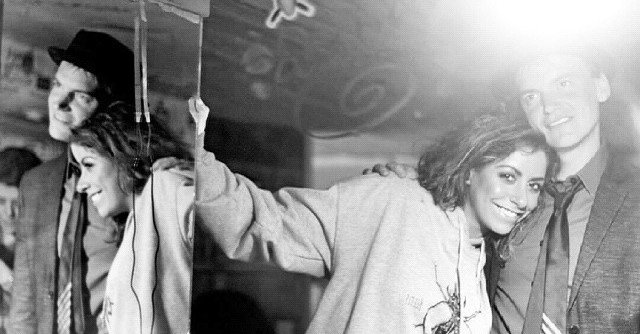
The projects with Renee and Lazaro are but a few of the collaborations you've had, at least based on what I saw on your iTunes page. Tell us about why you enjoy collaboration so much, and what it offers you as an artist.
For me, music offered a way to find a more humane truth from the time I was very young. It gave me solace, inspiration, personal expression, access to people’s stories and more. It is all very altruistic, I know, and touches on many ideas and cliches that get one laughed at in modern society, but I am out, often by impulse, to explore, share, create, and learn. Music is how I have been able to do that.
It has allowed me to spend weeks in the mountains of Oaxaca working with young brass band musicians whose first language is Mixe, and it has allowed me to play at the Town Hall in New York City with a bunch of my heroes – John Lurie, John Medeski, and John Zorn. And yes, there were also other people there not named John. That has happened because I do my best to take care of the music, and by being open and inquisitive. If I take care of my music, a brighter life seems to happen. It is not always cheer and optimism in song, but the rewards of a commitment to sincerity is a life lived fully awoke.
Todd Clouser will perform at Laifu Livehouse in Shuangjing's Pingod North Zone on Dec 27 and at Temple Bar on Dec 28.
More stories by this author here.
Email: kylemullin@truerun.com
Twitter: @MulKyle
Instagram: mullin.kyle
Photos: Icehouse, NoFm-Radio, Youtube. Expansion Radial

